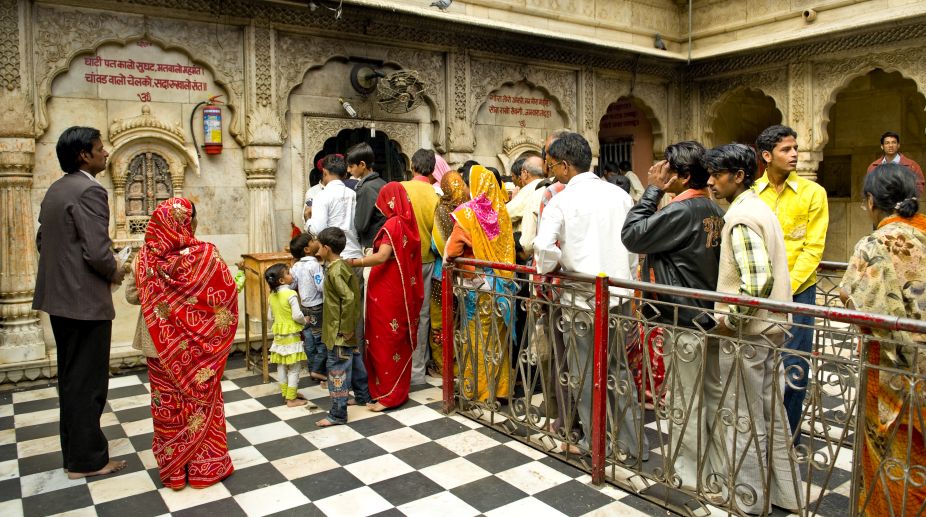Supreme Court rejects 100 per cent cross verification of EVM votes with VVPAT slips
The top court also rejected the prayers of petitioners to return to ballot paper voting system, calling it foible and unsound.
President of the Ayyappa Dharma Sena Rahul Easwar, the grandson of late Sabarimala priest Kandararu Maheswararu, has said they will be going for a review petition.

Representational Image (Photo: IANS)
The head priest of the Sabarimala temple, Kandararu Rajeevarau, has termed as “disappointing” the Supreme Court’s verdict allowing entry of women of all ages into the Ayyappa temple.
He, however, said the ‘Tantri family’ would accept the judgment, according to PTI. A Tantri is the Vedic head priest of Hindu temples in Kerala.
A five-judge constitution bench headed by Chief Justice Dipak Misra, in its 4:1 verdict, said banning entry of women to Kerala’s Sabarimala temple was gender discrimination and the practice violated rights of Hindu women.
Advertisement
Travancore Devaswom Board president A Padmakumar told PTI that the Supreme Court’s verdict would be studied in detail and further course of action would be decided after that.
Padmakumar said the board had informed the court that they wanted to continue with the existing ritual practices, but now they had no other option but to implement the verdict
The board, he said, would take steps to execute the apex court directive.
Read | Supreme Court scraps Sabarimala temple ban on entry of women
President of the Ayyappa Dharma Sena Rahul Easwar has said they will be going for a review petition.
Easwar is the grandson of late Sabarimala priest Kandararu Maheswararu, who died in May this year.
The court pronounced its verdict on a clutch of pleas challenging the ban on entry of women of menstrual age into Kerala’s Sabarimala temple and said law and society were tasked to act as levellers.
In a majority 4:1 judgment, the top court also read down the provision of Kerala laws that protected the prohibition and said it could not be covered under practices essential and integral to religious practice.
Justice Indu Malhotra, the only woman judge in the five-judge bench, gave a dissenting judgment.
Chief Justice Dipak Misra reading out the judgment also on behalf of Justice A.M. Khanwilkar, said that subversion of women’s rights under the garb of physiological phenomenon cannot be allowed.
“All devotees are equal and there cannot be any discrimination on the basis of gender,” Misra said.
Justice Rohinton F. Nariman in a separate but concurring judgment said that people of all faiths visit the temples — worshipers are not of separate denomination.
“Religion cannot become a cover to exclude and deny women their right to worship,” Justice D.Y. Chandrachud also said in a separate but concurring judgment.
Holding the Sabarimala temple is not a denominational temple peculiar to any sect, the court said that the Ayyappa temple belongs to Hindus and does not constitute a separate entity.
(With agency inputs)
Advertisement